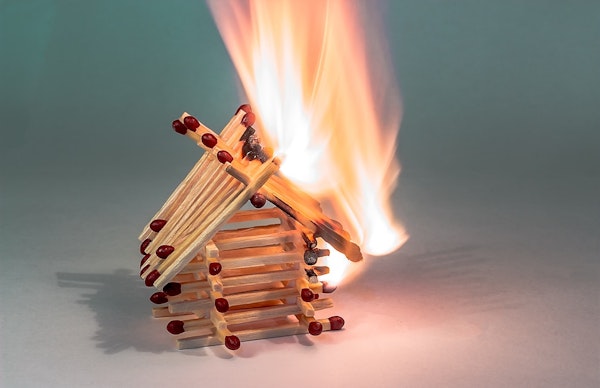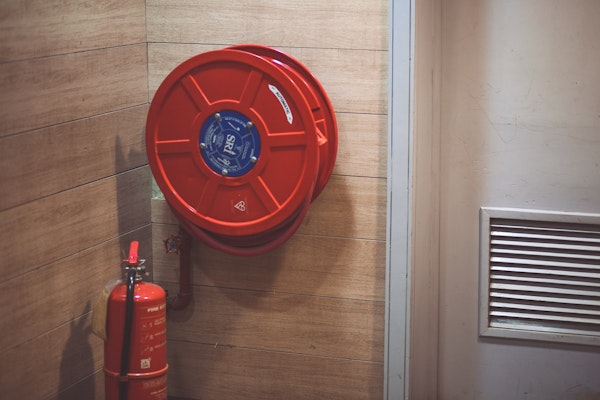- Fully qualified & insured teams
- Free site assessments
- Rapid response
- Rated Excellent
Fire Safety At Your Property – The Law and Prevention Measures
Fire safety can be too easy to overlook despite the fact that the risks associated with fire safety negligence may be fatal. The Grenfell Tower fire in June 2017 resulted in 72 deaths. This tragic event highlighted the importance of fire safety – particularly through comprehensive risk assessments and by mitigating risks.
The attitudes and practices around fire safety by social landlords have, not surprisingly, been in the spotlight since the fire at Grenfell Tower and many are taking a proactive approach to ensuring the risk assessment process is carefully considered.
However, monitoring and regulating fire safety within the private sector is more difficult to carry out. Fire risks go far beyond combustible cladding, despite this element of property construction being such a key focus in the Grenfell Tower incident. It is important to consider all parts of the building as well as property management issues to ensure compliance with the law and so that you are safeguarding against all risks.
What is the law on fire safety?
The Regulatory Reform (Fire Safety) Order 2005 sets out minimum fire safety standards and requires a ‘responsible person’ to be in charge of fire safety in non-domestic buildings, and also in buildings where people are employed. Typically, in a workplace, this person will be the employer or a senior employee.
The responsible person is obliged to carry out regular fire safety duties such as ensuring there is a fire risk assessment in place, and that any action points raised are carried out, and making sure that general fire safety precautions are satisfactory. If the premises have more than five people in employment the fire risk assessment must be written down.
Conducting a fire risk assessment
Your fire risk assessment should consider all aspects of the structure and management of your property. Any action points noted in the assessment should include an implementation timeline. Any works carried out to the building should be inspected and approved by a qualified risk assessor. The Institution of Fire Engineers (IFE) was the first UK organisation to establish a register of Fire Risk Assessors and it remains the largest scheme presently in the UK.
You should review your fire risk assessment every year or sooner if any building works have been carried out or if there has been a fire incident.
The importance of a comprehensive fire risk assessment should not be underestimated. In the event of a fire you could be liable for any damage to the property, injury or even fatality.
Fire safety in vacant property
If you own a property that is vacant, fire safety remains your legal responsibility – the same as it does as if you occupied the building. As a private landlord of an empty property your investment in maintaining the building is essential – not only in terms of giving yourself the best possible chance of renting or selling the property but also to ensuring its sits safe and secure.
It is very appealing to new owners and tenants if you can demonstrate you are fully compliant on all aspects of health and fire safety in your empty property. It shows you care about the property and the people occupying it.
Ensuring you have proper fire safety procedures in place will help to protect your vacant property while it is empty. Arson, criminal damage and theft are more prevalent in empty buildings than those which are occupied. 60 fires a day occur in or beside vacant or derelict properties in the UK according to Home Office estimates. The net result of this kind of activity is an increase in insurance claims and premiums. Not forgetting that your insurance company will probe any potential failures on your part to meet necessary fire safety regulations.
Fire protection systems
Regardless of whether your property is occupied or empty as the owner you still have an obligation to maintain fire safety systems and fulfil your legal obligations towards fire protection. This includes regular maintenance of fire safety equipment. Here are some of the fire protection systems that you should have in place in an empty property:
Fire Alarm Systems – a fully working fire alarm system can alert you to a fire situation before it takes hold and causes significant damage or worse, injury. A burnt out building means investment is required to rebuild it and it will remain unoccupied for longer. A monitored security or fire alarm also guarantees a professional and fast response should a problem arise.
Emergency Lighting – in the event of a fire, emergency lighting can increase the chance of your building being saved. It provides a backup if the electrical supply to the building is lost and it can help emergency services move around the property. Installing emergency lighting also sends a clear signal to prospective tenants and owners that you care about the property.
Fire Sprinklers (Wet and Dry Risers) – It may not be practical to keep this kind of equipment in use in an empty property. If that is the case you should drain the systems and isolate the water supply. If you are able to keep it operational you must continue to maintain it in accordance with legal and British Standard requirements.
Fire Extinguishers – your fire risk assessment will indicate how many fire extinguishers you need, what type and where they should be located at your property. There are many different types so always seek out professional advice. BAFE is the independent registration body for third party certified fire protection companies across the UK. It also holds a national independent register of quality fire safety service providers.
Fire safety should be at the forefront of every property owner’s mind. Fire protection is essential to the fire safety of all buildings, and in particular vacant properties. For a friendly chat on how to keep your empty property safe and secure please contact us and we’ll be happy to help.
Request a free no-obligation quote
We respond in under 30 mins on average (excl. weekends)



